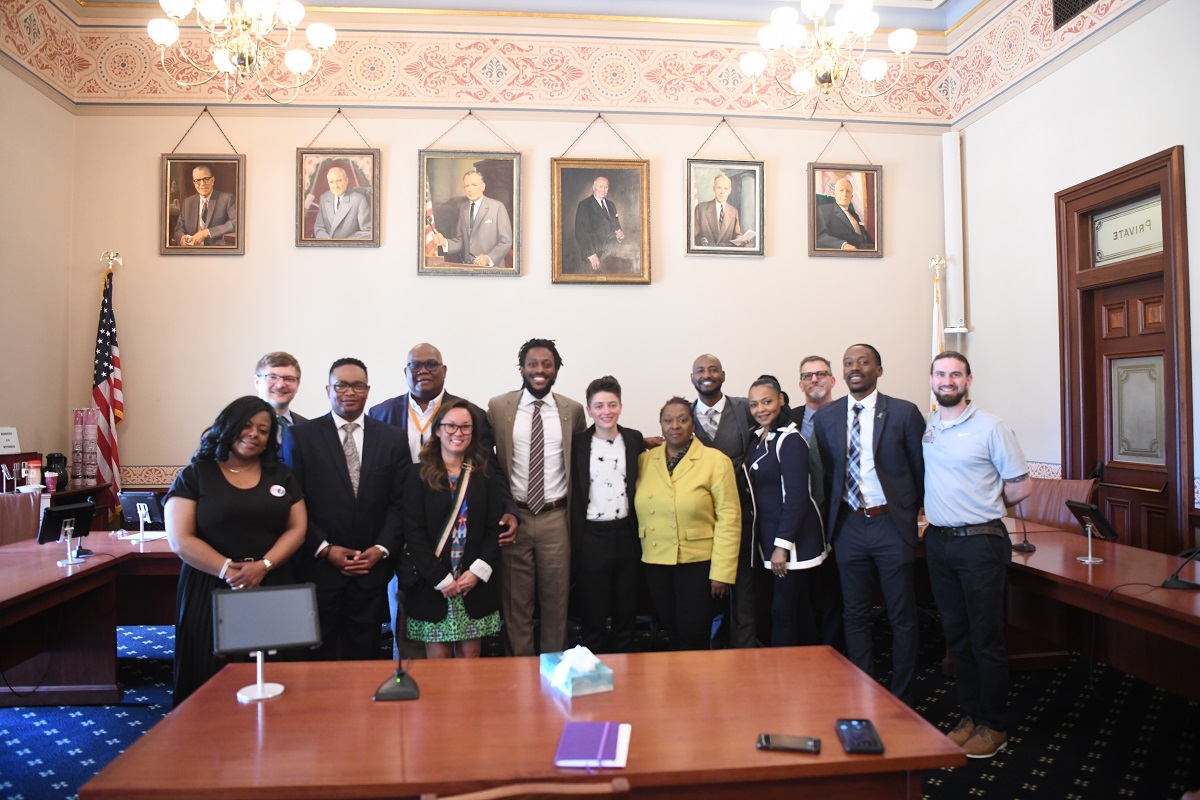 SPRINGFIELD – In tandem with the beginning of Mental Health Month, State Senator Mike Simmons organized a subject matter hearing at the State Capitol to look at the increase in suicide rates in African-American communities across Illinois.
SPRINGFIELD – In tandem with the beginning of Mental Health Month, State Senator Mike Simmons organized a subject matter hearing at the State Capitol to look at the increase in suicide rates in African-American communities across Illinois.
“I am deeply thankful to the people who traveled here today. It was the first time that several of our witnesses had ever been to the State Capitol,” said Simmons. “Some of them have paid the ultimate price losing loved ones to suicide and other internalized violence borne out by several systems that simply haven’t cut it when it comes to mental health and wellness in African-American communities.”
In a hearing held by the Senate Behavioral and Mental Health Committee, State Senator Mike Simmons brought critical attention to the escalating crisis of suicide rates within Black communities.
State Senator Mattie Hunter also spoke at the hearing, emphasizing the Senate’s prior work to address the issue of Black mental health, while also recognizing that there is much more work to be done.
“Our state has laid the groundwork to begin addressing this issue. The Illinois Legislative Black Caucus’ Health and Human Services Pillar included provisions to improve access to mental health care and train medical providers to recognize and overcome implicit bias,” said Hunter (D-Chicago). “The data and the stories we hear remind us of the urgent need to address the systemic inequities that have long plagued our health care system. We cannot accept this reality.”
Statistics have shown significant suicide increases among several communities. However, Black Illinoisans are the only racial or ethnic group in the country whose suicide rates are now higher than they were at the height of the COVID-19 pandemic, according to an article published by the Chicago Sun Times. That increase in suicide rates is several times higher for Black men and has risen for Black youth.
“The discussion today was rich and poignantly focused on the problems that contribute to the increase in suicide rates in Black communities across Illinois,” said Simmons. “Several ideas were also put forward by community members that could help us start to reduce suicides. We must be relentless in naming this suicide trend and focused on supporting community-based organizations in delivering adequate culturally competent care, vigorous and compassionate follow up, and overall wellness in Black communities across the state of Illinois. I am proud to have each witness here today as co-governing partners in this work we will and must do together.”
Simmons, who is the Vice-Chair of the Senate Behavioral and Mental Health Committee, has been a champion for mental health since he joined the Illinois Senate in 2021. The hearing brought together mental health experts, those who are directly impacted by the crisis, community leaders, and advocates to look at the status quo and explore actionable legislative and budgetary solutions.
The committee hearing was a productive and timely discussion between community members, leaders, mental health experts, advocates, and members of the Senate.
Panelists included the following:
Rafiah Maxey-Cole, Founder, Soul Survivors of Chicago
Dr. Donnell Barnett, PhD, Illinois Department of Human Services and Past President of the National Association of Black Psychologists
Miriam Smith Taylor, National Alliance on Mental Illness Lake County and Tricultural Witness
Charles George, Co-Founder and Co-Executive Director of Shoot for the Stars in Uptown neighborhood of Chicago
Dr. Leila Ellis Nelson, Changing Perspectives, LCSW, and Adjunct Professor
Eric Metcalf, National Alliance on Mental Illness DuPage, Peer Program Director, and Co-Creator of NAMI Illinois Mental Health Mentor Pilot
Charles Hartwick, Reentry and Workforce Services Supervisor, Howard Evanston Area Community Center













 © 2026 Illinois Senate Democratic Caucus
© 2026 Illinois Senate Democratic Caucus